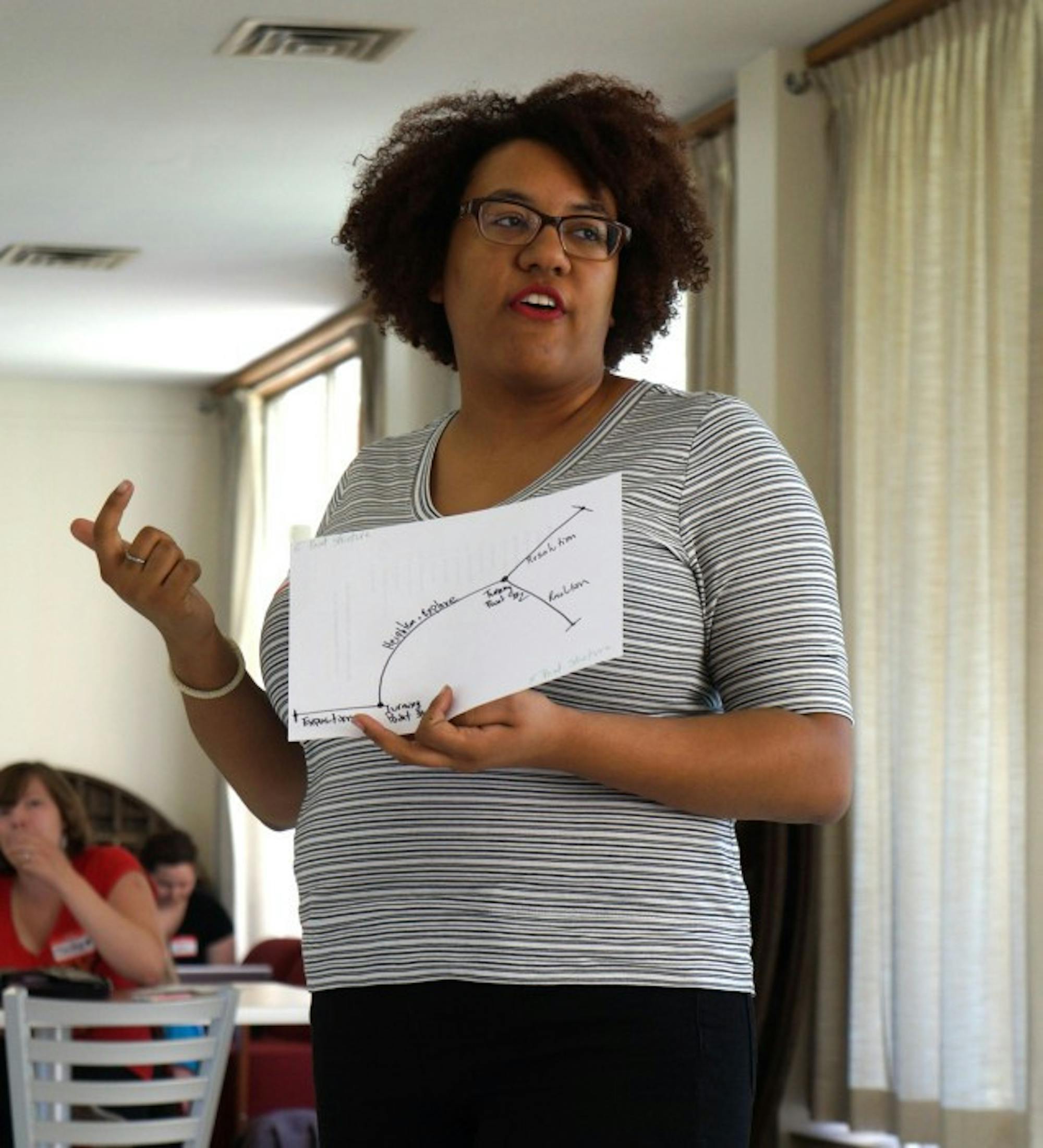
Caitlyn Jordan
Caitlyn Jordan
Students and faculty alike took center stage as Second City troupe members taught them the principles of improvisation at Saint Mary’s on Sunday afternoon.
Associate professor of Dance and Theatre Katie Sullivan said the workshops hosted by Second City, an improvisational comedy group with headquarters in Chicago, took place over four days and the levels ranged from beginning to advanced. The session’s topics included writing, comedy, musical improv and how to make a living from improv acting. Some sessions were reserved specifically for theatre majors and minors, while others, including the basic improv workshop, were open to students and faculty.
In the basic improv session, participants engaged in various activities, such as word association, name games, physical acting and responses to Dr. Know-it-all — an improv game in which participants had to answer a question one word at a time and form a coherent response. The session focused on ensemble, emotion, an exercise called “yes and” commonly used in improv acting and responses to changing situations.
“This one is fun because we’ve opened it up to anyone who answered the email on time,” Sullivan said. “There’s faculty, staff and students, which is very fun.”
Troupe members Casey Whitaker and Jasbir Singh said their goal was to improve everyone’s improv ability while hosting an enjoyable workshop.
“We have to be completely open to whatever is going to happen,” Whitaker said. “The main goal of improv is to have fun.”
During one portion of the basic improv workshop, Whitaker and Singh paired up participants and encouraged them to talk about their days. Singh said this exercise helped them learn how to carry on a conversation through constructing thoughtful but rapid answers to questions.
“If someone does something, you have to respond,” Singh said. “That’s a basic of improv. Eye contact and listening and affirming are very important here.”
Another exercise involved groups of three participants acting out assigned situations and demonstrating complex relationships. Participants were instructed to demonstrate ranges of emotions in this activity.
“We all kind of know what a best friend relationship would feel like,” Whitaker said. “You need to use some of your own personal experiences to act this out. This helps everybody.”
According to Whitaker, actors can generate responses by applying different scenarios to their lives and by building from past experiences.
“The best thing to do when you feel lost is to turn inward to your partners and to make it about the relationship,” Whitaker said. “Commitment is a big thing that makes improv successful.”
Whitaker said she was impressed with the improvements students and faculty made within the two-hour workshop.
“You guys are no longer beginners,” Whitaker said. “So much of the work is not about trying to be funny and make a joke. The humor finds its way in. It only comes because you’re committed.”
The duo left one lasting piece of advice for aspiring actors: continue the conversation.
“If you don’t know what to say, say anything,” Singh said. “It doesn’t matter. When you hear yourself say something, you’ll feel something. Just do something. Say anything you want.”













